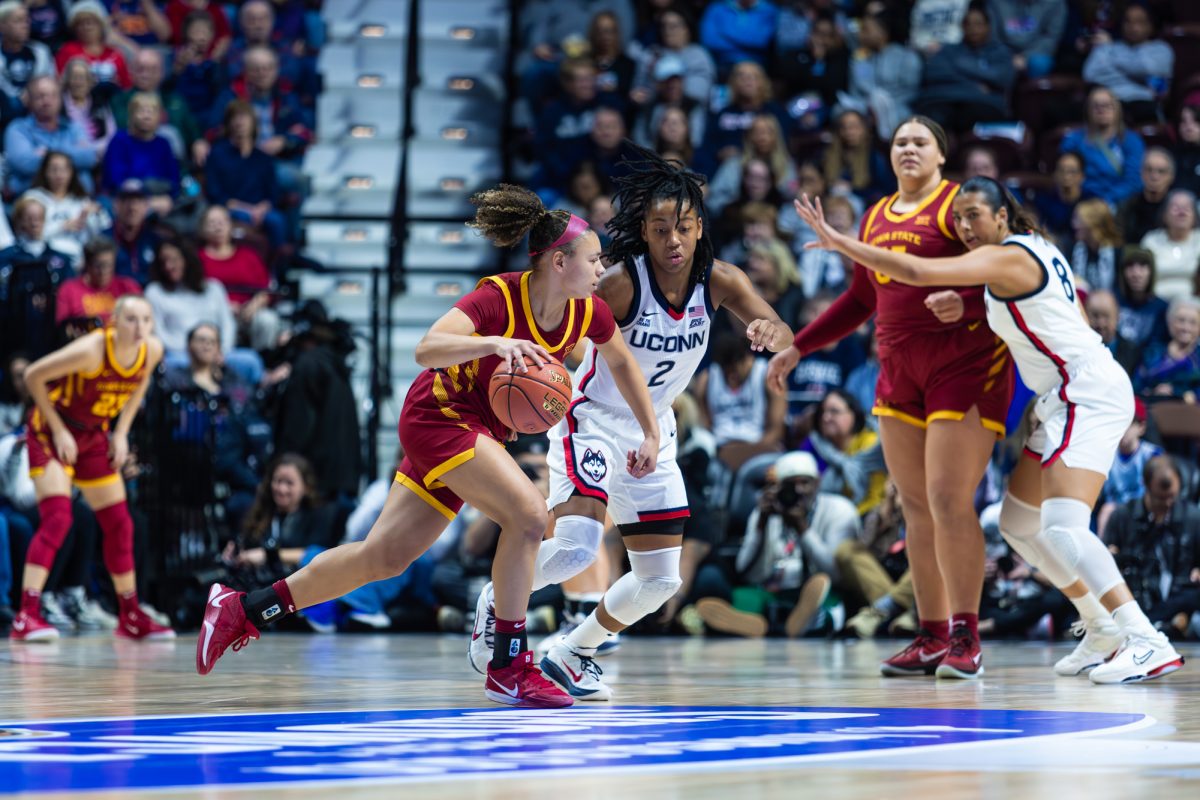VIEWPOINTS: Everyday language choices hold harmful implications
September 9, 2009
This is a story of a boy’s homecoming. “Michael,” we’ll call him.
Michael recently returned to Ames, his hometown, for a short visit before starting his final year of college out-of-state. After growing up in Ames and touring Europe, living in New York City for one summer and Evanston, Ill., for two, he had forgotten the amount of ignorance and narrow-mindedness that still existed in his small town.
Michael spent a night on Welch Avenue connecting with friends from high school and his one year of attending Iowa State University. “It was a really great night,” he said. “I really was amazed at how many people were still around that I knew.”
This first night out went OK, although he still heard an occasional “fag” or how “gay” someone or something was.
“I’ve heard these things all my life, particularly in Ames,” Michael said. “When I’m in Chicago, New York, Europe or Minneapolis, if I hear it, there is always someone around who will step up and say, ‘Hey, that’s not cool’, and I don’t have to be the one to address it.”
The second night out included a quick stop at Welch Avenue Station and then on to a house party of a friend’s friend. When a female friend from middle school and male friend of her’s arrived at the party, there was a large group of men playing beer pong — strip beer pong. This was a new twist on the common drinking game, particularly with just the men playing. There were a few non-players at the party and the three of them began talking and enjoying a few drinks.
As the night moved into early morning hours, the players became increasingly intoxicated and the familiar “male bonding” game of calling each other “fag,” “gay,” “homo” and so on ratcheted up to an intolerable level for Michael. He stepped up and asked the men to stop using these names and explained why it wasn’t all right.
Michael received an incredible amount of resistance and anger from the men and after hearing, “This is my damn house and I’ll do whatever I want,” he decided it was time for him to leave.
A conversation about language, male and heterosexist privilege and male dominance sprang to life and continued between Michael and his friends as they returned to the female friend’s apartment for the evening. Certain statements like, “You can’t be upset with them, they are all from small towns in Iowa,” and “It doesn’t mean anything, they are just stupid words,” were used as justifications.
Michael explained that he had heard every argument on the market why white, heterosexual men think it is their “right” to speak however they want, and few held any regard for what was equitable, just and humane. He also asserted that he too was from a small town in Iowa and didn’t behave like the men at the party had.
“We know long before someone says to us, ‘Hey, that ain’t cool,’ not to use whatever hateful and oppressive language we and our peers might be using,” Michael said. “By the time you get to college, we all ‘know’ what is right and what is wrong. After we know, we consciously make a choice to continue to use these words to bond with and exclude other men.”
He continued. “Several years ago, my great-grandmother frequently used the n-word when referring to African-Americans.
“Do you use this word anymore? No? Why not? [Because] it’s not acceptable!
“It is hateful and harmful. So why do you make a weak argument to continue to use ‘fag,’ ‘gay’ and ‘homo’ when referring to someone who appears to not be heterosexual?”
The discussion went on for many hours until Michael decided his audience wasn’t in a place to comprehend the point he was making.
As he prepared to leave Ames, Michael said, “This isn’t high school anymore. We can’t continue to act like we don’t know how harmful these words are to others – and to the person who uses them. I can’t understand why the men I encountered would be comfortable playing strip beer bong, but uncomfortable with the request to stop using hateful, oppressive language.”
Michael is right. This isn’t high school anymore.
When students graduate from Iowa State University they will move into professional positions in a number of different communities across the nation and globe. Ignorance and narrow-minded perspectives will not serve individuals well today or in their future.
Get out of the high school mentality and open your mind to what you can learn at Iowa State University about yourself and others – all others.
We are one community; let’s begin to behave as such.
Penny J. Rice, Director,
Margaret Sloss Women’s Center
Brad Freihoefer, Coordinator,
LGBT Student Services






